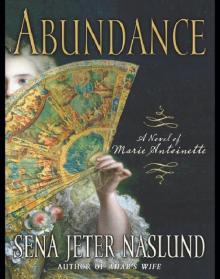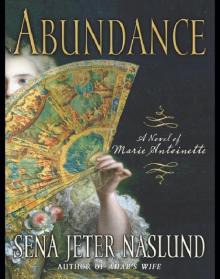- Home
- Sena Jeter Naslund
Ahab's Wife, or the Star-Gazer Page 2
Ahab's Wife, or the Star-Gazer Read online
Page 2
Nantucket! The home where first I found my body, my feet not so much being pulled into this sandy beach as seeking downward, toes better than roots; then my mind, built not to chart this blue swell of heaving ocean, but the night sky, where the stars themselves, I do believe, heave and float and spin in fiery passions of their own; Nantucket!—home, finally, of my soul, found on a platform eight-by-eight, the wooden widow’s walk perched like a pulpit atop my house. These three gears of myself—body, mind, and soul—mesh here on this small island—Nantucket! Then, why, when I look into the mild day sky, do the clouds scramble, like letters in the alphabet, and spell not Nantucket, but that first home, Kentucky? And those clouds that did bulge with the image of Ahab show me the map of that state, flat across the bottom and all billowed at the top?
As a child of three, lying on my back close to the Ohio River, when I looked up, the puffy clouds formed neither map, nor portrait, nor white animals grazing the sky, but I thought: Beautiful! This is what they mean by beautiful.
Even as a child, I wanted to know what words meant and marked those occasions when I did learn as memorable. Once when I sat on a stump in the yard and watched my father drive away in the black buggy, his whip in his hand, I thought, Sad, I feel sad, and I knew that it was my first matching of that word and that feeling. I asked my mother to show me the letters for that word, and thus I began to write as well as read at a very early age. “S-s-s,” she said. “The letter looks like and sounds like a snake, and s begins both sad and snake.” Well might sad be matched to my father, for though he was kind to me as a child, he became a moody and then a desperate and violent man, who took his own life.
His ghost rides by in black; standing at his knee, the whip, its lash dangling like a thin banner.
I DID NOT consult Ahab about my decision to spend my pregnancy in a rough Kentucky cabin, with my mother, instead of staying in the gracious home of a captain’s wife on Nantucket. But I wrote him, of course, and sent the letter after him on the ship called the Dove, so he could imagine me aright.
That time spent with my mother outdoors in the sweet summer and golden Kentucky autumn was augmented by our indoor companionship of sewing baby smocks and cooking and reading again those great works of literature my mother had brought with her to the wilderness, green-bound books I had read as a child or she had read to me.
Sometimes my mother and I stood and looked at our faces together in the oval mirror she had brought with her from the East. Along with her library chest of books, the mirror with its many-stepped molding distinguished our frontier cabin from others. Thus, elegantly framed, my mother and I made a double portrait of ourselves for memory, by looking in the mirror.
WHEN IN MID-DECEMBER the labor began but tried in vain to progress, my mother went from our cabin, driving the old mare in the black buggy through a six-inch crust of snow, for the doctor. In my travail, I scarcely noticed her leaving. When my mother did not come home and did not come home, and the pains were near unbearable and the chill was creeping across the cabin floor and into my feet as I paced, I grasped the feather bed from my bunk and flung it atop her bed. In desperation, between spasms, I gathered all the gaudy quilts in the house, and then, leaving the latchstring out so that I would not have to venture from my nest when she returned, I took to my childbirth bed. There, softness of two mattresses comforted me from beneath and warmth of myriad quilts, a cacophony of colors, warmed me from above, but still I worked my feet and legs and twisted my back.
Despite the heat of my labor, I could feel my nose turning to ice, long and sharp as a church steeple all glazed with frost. Parsnip! I thought of; frozen and funny—a vegetable on my face! I chortled and then prayed, wondering if prayer and laughter gurgled up, sometime, from the same spring. Let nose be parsnip, parsnip be steeple, steeple be nose—whatever that protuberance, it is frozen to the very cartilage. Warm it! Save me, gods and saints!
Wild and crazed by pain, my thoughts leaped about in antic dance, circling one picture after another. Nose! Steeple! Parsnip! My desperate, laughing prayer from within that quilted hump below its parsnip was only that I should be delivered and nothing at all for the welfare of the rest of the world.
And yet I wanted to wait for my mother’s return, and I was afraid because I had little idea of how to catch the baby. So even as I prayed, I prayed against myself, that time would not pass nor take me any closer to the port of motherhood. I thought of Ahab, as if his ship were wallowing, going neither forward nor drifting back but immobile in a confused sea. Sometimes I slept a little.
During an exhausted respite from the pains that wrung me, and yet amid my anxiety for my too-long-absent mother, I thought I heard the door creak open and an attendant puff of colder cold, but sleep claimed me again. In my sleep Zephyrs roamed the room. Their cheeks were bloated with frosty breath, which they jetted through pursed lips across the tip of my nose, down the part of my hair, and into my ears.
Then there came such a pounding at the door that I thought, Volcanos! It will burst through!
“Open the door,” they shouted. “Give her up now!” And terrible pounding of closed fists on my boards.
“Pull the latchstring,” I called, for terrifying as they sounded, I didn’t want my door shattered by their anger, nor did I want to leave the bed. Seeing how humped I was, wouldn’t any being attached to human voice pity me? Around me, the cabin was almost black, as I had left no candle burning, and the windows had been shuttered for the winter. The fire was no more than red-glow.
“No latchstring out!” one man called. And gruffer voices growled without human language. So I lifted the covers and stood by the bed, but before I did their bidding, I covered my warm spot atop the two feather beds with my quilts. Slowly I crossed the dim cabin—I imagined a dark ghoul crouching along the wall—harbinger of pain to come?—but I opened the door and faced the snow. As though frozen in the icy air, a group of six, all bundled up in wool and fur, stood around a torch of blazing pine knot.
“Her tracks come to your door, Madam,” one said. “Give her up, now.”
These bounty hunters seemed to lick their mouths where frost was caked in their long mustaches and beards. They were like ice demons, but my innocence made me brave, for I harbored no runaway slave.
“I am in childbirth at this very moment.” They could clearly see my great roundness in my flannel gown. “I’m waiting my mother and the doctor. Have you seen them?”
One of the six was much smaller than a normal man. His head rose only to the waists of the others, and he wore the pelt of a wolf. I would have thought the man a child, but his face was heavily bearded, and the hair of his face joined and blended with the wolf fur. The ears and snout of the wolf hooded his head, and the wolf’s ivory teeth were fastened in the man’s hair. Were he not diminutive, he would have suggested a frontier Hercules cloaked in skin of wolf instead of Nemean lion. The dwarfish wolf-man held the high-lifted, blazing pine knot, big as a thigh, in the center of the group. As he lifted his torch higher, the pack stretched to see beyond me into my house. Beyond them, in that flickering, orange light, I could see bare footprints in the snow, small ones, such as a woman might make, and indeed they led toward my door, at least to the great mauled patch where their boots were shifting and scratching.
“We must search your house.”
The frigid wind swept over my skin like icy water, and then hot water poured from between my legs and wetted my gown and the floor. I stepped back.
“Look, you,” I cried. “My water’s breaking!” I would use my shame to rebuff them.
“Still, we’ll have the wench, and you must yield her up.”
“Look in my house, if you like,” I replied, resigned. “But I must go to my bed.”
And I did, sniffing back my fear, and wanting my mother, and watching them. From the big torch, which they stuck in a snowbank, they each lighted a taper of fat-pine kindling and entered my house, closing the door. They held up the flaming sticks like candles and fi
lled the cabin with light. Deep in my bed, I wondered, Will these ruffians stay while my sweet babe comes out? The room glowed, and rosin-scented smoke curled to the ceiling. Among these demon-angels, is there a father who might help me? But the thought of their awful paws between my thighs frightened me so much I would not ask. I lay gasping and groaning while they looked around and beneath the furniture. There was little place for concealment in the room.
“Search under the bunk.”
The dwarf dropped to all fours, and then he truly looked like a wolf snuffing under the beds. And when he stood up again, he seemed a magic wolf, trained to walk unnaturally in houses, on his hind legs. One hunter opened my sea chest, which I knew to be empty, and peered in.
“You have a hill of cover upon you.”
“The lass is a mountain in herself, Jack,” another said quietly, and I heard the Scotch burr in his voice.
“Could you bring in wood for me? afore you leave?”
The rough-spoken man put his hand on my cover to jerk it back in his search, but the Scotsman restrained the hand and said, “No, Jack. Be leaving her her warmth now, and let’s be off.” I have always thought the Scotsman would have brought in wood for me, but because he knew the men to be mean and ready for roughness of unspeakable kinds, he set them on the hunt again.
“Sometimes they walk backward in their trails,” the dwarf added persuasively, “to throw us off the chase.” I started at his voice—soft as fur. “She’s not here,” he added, in the same caressing tone. Pivoting in a furry blur, he scampered across the room to the door.
A pack following their leader, the hunters clomped after the wolf-cloaked dwarf, and as they passed through the door, they doused their firebrands, each stick hissing as it entered the snow. From the drift, the Scotsman took up the blazing torch, the pine knot whorled like a hip joint. Then someone eased the door shut, and the cabin was utterly dark again.
My fear seemed to have stilled my labor. I listened to the crunch of the men’s boots going toward the river, which was frozen solid. At a distance, they sounded almost merry, like Christmas revelers, rather than a cruel posse on a deadly hunt for a human being.
Their coming and going had let out all the warmth from the fire, which was sunk almost to embers, no bigger than eyes. Though my labor stood still, and I did not knead the covers or corkscrew my back, I quivered and shook—whether with fear that the men might come back or with dread that my baby was to be welcomed only by my ignorance and the winter’s cold, I don’t know. If I did not die of childbirth, I and my child would likely freeze to death. I knew if I rubbed myself that friction would warm me a bit, but I was too fearful to make the effort. Involunteer, I lay and quivered and shivered. It seemed, after a long time, that the bed itself was cold and also shivering.
Typhoon sleep enswirled my mind and I dreamed—of the dwarf, his eyes brown and warm as ancient amber, beautifully human in his animal face. Did he know the midwife’s art? The dream dwarf asked me my name. “Una!” I said sharply and woke myself.
The pain was hard, tight and dark within me. I lay still except for my involuntary shivering and the bedding shivering on its woven ropes in return. The fire had fallen to ash; the last ember eye had closed.
I shivered and the bed shivered, till finally in my delirious state, the bed seemed to be offering a signal, and I thought it was a friendly signal, that it, too, was cold, and I was not alone. Finally, thinking that if somehow I should live, I should not want to do so without a nose, and if I did not cover it, mine might freeze solid and crack off, falling like a tree cut at its base, I reached up for the edge of the covers and pulled them over my head. Fingering that vulnerable member, I said, Thou shalt not freeze—not at least if I’ve brains enough to pull thee under cover! Then I smiled, to speak to my nose in the voice of Quaker English. Art turning into Ahab? I asked. Nose first? And, under the quilts, I thumped myself there till I did sting with the feeling, and tears squeezed from my eyes.
But the tears were for the loneliness of the gesture, not for the stinging, but for my longing for my husband. If Dr. Carter was not to be found, what harm or danger prevented my mother’s return? I realized cold was but a cloak for the more fearsome specter: alone-ness.
As I continued to thump my nose, then it was I heard a voice, coming, it seemed, from my own belly! Or from my back? Within my cave in the bed. I opened my eyes to look down my body, to see if somehow I had, unknown, produced a vocal babe. Under the covers, the blackness of the cabin—the fire having gone totally out—was compounded to the most profound degree.
What had my babe said?
I waited in the dark, but heard nothing. I felt my belly; the babe was yet within. I shivered. Yes, the bed shivered.
“O, Natural Vibration!” I said aloud, but did not know how to further address a Vibration. And so I laughed, an unearthly, merry peal.
Then, it occurred to me to jiggle the bed. I did shake the mattresses upon their web of rope, and in return, from beneath me—a jiggle. Complexing the signal, I jiggled twice—and twice the bed jiggled in return. I skipped ahead in my addition and jiggled seven times for the days in the week. When seven jiggles, to the very count, came back, despite my crazy dilemma, I giggled.
And then the voice, low as though filtered through baffles, said, “We be lots warmer, we put our skins together.”
“Lazarus, come forth,” I commanded and laughed joyfully, till a birth pain cut me short.
I was not alone.
From between the two mattresses, under my back, I felt her body moving. And though I saw nothing, I imaged with my inward eye her fingers grope the edge, her head and neck thrust through, and then in a smooth lunge—so as not to disturb me on the upper mattress—she slid out onto the floor, her landing muffled by the braided rug. I pictured her quite flat as though passed through the wringers over a washtub, and then puffed up to normal, once free of her compression. Lifting up the side of my cover, I welcomed her, emissary of the lost tribe, into my tent.
Though she had run far in the snowy night, she was wearing but a shift, and her body was colder than mine. I turned to her, and she curved her small self, lean and taut, to my belly as though it were a great hot rock. I bent her close to me and she pulled herself yet closer so that our bosoms touched, and I rubbed her back, and she rubbed the flat space between my shoulder blades and all down my spine, and what with the friction of it and the two of us constantly moving, we did become warmer. And then I kissed her on the cheek, and she did me, and it was settled that we were sisters and more than that, for the spirits of sisters are not always married.
Before I had seen either her face or the smooth cheek I had kissed, my labor seized me. I needed to turn on my back, and needed to bear down and needed desperately to lift my knees—oh, let some contortion expel this babe!—let me thrust my legs straight. Again, I needed to draw them back and thrust, and coil and uncoil, and again. After much of this labor, during a lull, I learned her name, and she said that she would go out to the woodpile and I said that she must wrap herself in the top two quilts.
She slid out from our bed, and, still not visible in the darkness, carefully drew off the top layers of cover, wrapped herself, crossed the floor, and passed through the door. So quickly did my state vacillate now, between dozing and consciousness, that I am ashamed to say that I kept no vigil for her but awoke when she returned. From the moonlight reflected by the snow, I saw her figure in the door opening, one arm curled up carrying the logs, the other free to reach back. With the closing of the door, her image was lost to me again, but I pictured her by sound. When she straightened her arms, the wood rolled down to the hearth, and the rumble of the pieces jouncing each other, bruising and kissing the bark of their fellows and tumbling onto the hearthstones, was as pleasant and promising as any sound I know.
After she had kindled a blaze for us, in the warm glow of the fire, I could see her—Susan—moving about the room, enfolded by the quilts, the red patch-blocks catching the fireglow wi
th their congenial color. The dark curve of her head and her small pigtails sticking up, which I had known by feel in the bed, I saw in silhouette.
Soon, I discerned her face and believed it to be the color of dark walnut. Her lips, leaning over me, her lips very even in the fullness of the upper and lower lip, and most generous, shaped words: “You be all right, soon now. Push on, now.” Her dear lips pushed the air when she said push in a soft puff of encouragement. “You sure to live.” Her hands briskly rubbed my belly, so fast and light that I could not feel pain where her fingers shimmied.
“You be all right. You be all right.”
“You must reach inside me,” I said.
“I afeared,” Susan answered, but she did not refuse.
“Give me your hands.” I took them and kissed her fingertips. “Now,” I said, “reach in.”
Susan nodded yes and, between my tented knees, bent her head to the work; her short pigtails marched in a single row over the top of her head. Quicker than a gasp, I saw ancient helmets with their row of short, stiff horsehair, line drawings of warriors in Mother’s I liad for Boys.
“I not want to hurt you.” Her voice was a sweet whisper of kindness. Through it ran the silver vein of intelligence.
I told her I couldn’t feel. I smiled as I lied. That the feeling was elsewhere.
We screamed together. The screams tore out of us.
She tore the baby out of me.
“Aloft! Aloft!” I shouted, and she held him up by his heels, the purple cord spiraling down.

 Abundance: A Novel of Marie Antoinette
Abundance: A Novel of Marie Antoinette Four Spirits
Four Spirits The Fountain of St. James Court; Or, Portrait of the Artist as an Old Woman
The Fountain of St. James Court; Or, Portrait of the Artist as an Old Woman Ahab's Wife, or the Star-Gazer
Ahab's Wife, or the Star-Gazer Abundance, A Novel of Marie Antionette
Abundance, A Novel of Marie Antionette Ahab's Wife
Ahab's Wife